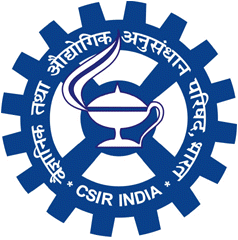Treatments Focus
SLE/ Rheumatoid Arthritis

Persistent pain in the joints even at a young age can make wonder and doubt if they are suffering from arthritis. Symptoms such as fatigue, stiffness and swelling of the joints can be similar to different diseased conditions and requires thorough check-ups from your healthcare provider.
One of the reasons for these symptoms could be Rheumatoid arthritis (RA) or Systemic lupus erythematosus (SLE). Both of these conditions have similarities in symptoms and can be difficult to diagnose. Sometimes, when there is a delay in diagnoses or underdiagnosed, the person is said to suffer from “rhupus.” Researchers refer to the overlap of conditions as rhupus syndrome, which features both RA and SLE.
What are SLE and Rheumatoid arthritis?
Both SLE and RA are autoimmune diseases. Autoimmune disorders occur when an individual’s own immune system attacks their healthy cells. Both SLE and RA are associated with triggering inflammations in the body.
Symptoms
Both SLE and RA symptoms tend to appear in younger age groups, i.e., 30-50 years in RA and 15-45 years in case of SLE.
Symptoms specific to SLE include:
Fatigue
Pain and swelling
in the joints
Butterfly shaped rash across the nose and cheeks
Feverishness
Headaches
Sensitivity to sunlight
or fluorescent light
Hair loss
Ulcers in mouth
or nose
Numbness at the
tips of fingers & toes
Symptoms specific to RA include:
Fatigue
Pain, stiffness or swelling of the joints for more than 6 weeks
Pain in multiple joints
Feverishness
due to pain
Both conditions share similar symptoms (obvious similarity is joint pain and fatigue).
Differences in SLE & RA symptoms
- Lupus (SLE) affects joints, but mainly affects internal organs and your skin. It causes other complications such as seizures, increased blood clotting frequency, and kidney failure.
- Above symptoms and complications are not associated with RA. It primarily attacks your joints in your fingers, wrists, knees and ankles. RA can cause inflammation in the lungs and around your heart, which is not the case with lupus.
- Pain in the joints in case of RA is more in the mornings and subdues later, whereas the pain is consistent throughout the day in SLE.
- In advanced stages, RA causes bone deformation (changes in bone shape) while SLE does not.
Causes
The cause of either of the diseases is not clear. It is said to be influenced by genetic, hormonal and environmental factors.
Diagnosis & Treatment
Initial stages of both SLE & RA can be confusing as they share common characteristics and mimics other conditions. This can cause delay in the diagnosis. Diagnosis can be done by
- Careful examination of signs and symptoms (ruling out other conditions)
- Combination of blood tests & urine tests
Treatment only aids in curing the symptoms such as inflammation and joint pains.
FAQ's :
It is not a hereditary disease. However, if an immediate family member is having SLE, there is a risk that you may be affected as well. Example – a possibility between twin siblings.
Genetic studies are being done towards genetic testing and to create personalised medicine for SLE.
The most significant genetic risk factors for rheumatoid arthritis are variations in human leukocyte antigen (HLA) genes, especially the HLA-DR4 gene.
An anti-cyclic citrullinated peptide (anti-CCP/ACCP) test is an antibody test that looks for the presences of antibodies in a person and confirms rheumatoid arthritis.
The treatment involves collecting stem cells (cells which can develop into many different types of cells in the body) from a patient with immunodeficiency, correcting the gene in the cells, and then returning the corrected stem cells to the patient. Because gene therapy uses the patient’s own cells, there is no need to find a suitable donor. Only a few immunodeficiencies are being treated with this medication.
References :
- Mayo Clinic. https://www.mayoclinic.org/diseases-conditions/lupus/diagnosis-treatment/drc-20365790 Accessed on 28-03-2022
- What is lupus? Versus arthritis. https://www.versusarthritis.org/about-arthritis/conditions/lupus-sle/ Accessed on 28-03-2022
- Lupus vs. Rheumatoid Arthritis: What’s the Difference? Creaky Joints. https://creakyjoints.org/symptoms/lupus-vs-rheumatoid-arthritis/ Accessed on 28-03-2022
- Rheumatoid Arthritis (RA) Centers for Disease Control and Prevention. https://www.cdc.gov/arthritis/basics/rheumatoid-arthritis.html
- Accessed on 28-03-2022
- Rheumatoid Arthritis. MedlinePlus. https://medlineplus.gov/rheumatoidarthritis.html Accessed on 28-03-2022
Related Articles
Book an Appointment to understand how GenepoweRx can help you in treating
SLE/ Rheumatoid Arthritis
Meet The Doctors
Dr Kalyan Uppaluri
Dr Hima Challa
Your genetics … Your Test ... Your Health Success
It’s always the word of mouth that’s the best advice. Here are some of our…


Our Partners






Professional Partnerships
Government Association

